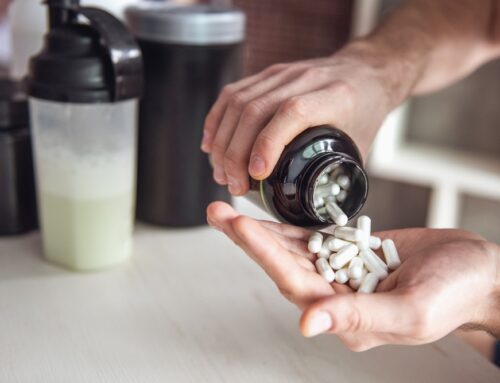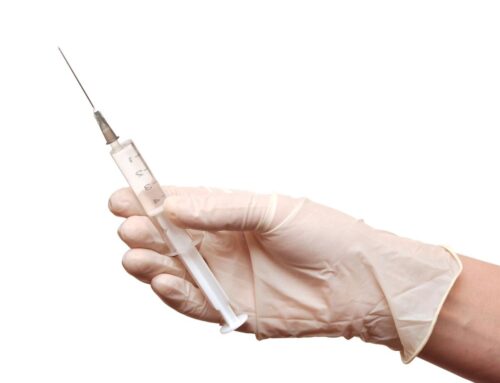Are you concerned about the impact of alcohol and smoking on your levels of testosterone? It’s essential to understand the link between these habits and your hormone health. Alcohol can negatively influence your sex hormone balance, leading to a decrease in libido and causing sexual dysfunction. Low testosterone can also result from these habits, further complicating your hormonal health.
On the other hand, smoking can directly affect testosterone production, impacting sexual function and overall reproductive health. Both habits can also alter the normal range of testosterone in the body, potentially leading some to consider testosterone replacement therapy or other testosterone therapies.
Moreover, excessive alcohol consumption can raise blood pressure, adding another layer of health concerns. By learning about these effects and finding strategies to reduce alcohol and tobacco consumption, you can work towards maintaining optimal testosterone levels. Take charge of your well-being by understanding the toll these habits can have on your body.
The Link Between Alcohol and Testosterone Levels
How does alcohol affect your testosterone levels? Alcohol consumption has a profound impact on your testosterone levels and overall health. When you indulge in alcohol, it disrupts the production and regulation of testosterone in your body.
Specifically, alcohol inhibits the release of luteinizing hormone (LH), a critical component that signals the sex organs, like the testicles, to produce testosterone. This disruption can lead to a decrease in the normal testosterone range, which is why a testosterone diet may be beneficial.
Moreover, alcohol can increase the production of aromatase. This enzyme converts testosterone into estrogen, leading to an imbalance in hormone levels. Such imbalances can result in symptoms like weight gain and body fat accumulation.
For women, excessive alcohol might exacerbate conditions like ovarian syndrome, leading to irregular periods. It’s also worth noting that alcohol can harm the Leydig cells in the testicles, which are pivotal for testosterone production.
Furthermore, alcohol’s impact on testosterone can influence fetal development and might be linked to conditions like adrenal hyperplasia. If you notice symptoms like unexpected pubic hair growth or other unusual signs, it’s essential to seek medical advice.
In essence, regular and excessive alcohol consumption can have lasting effects on testosterone levels and various aspects of your well-being, making a testosterone diet an important consideration for those looking to mitigate these effects.
How Smoking Affects Testosterone Production
Smoking has a detrimental effect on testosterone production, often leading to decreased normal testosterone levels. The harmful chemicals present in cigarettes can directly interfere with the body’s ability to produce testosterone. Specifically, these chemicals can damage the Leydig cells in the testes, which are vital for testosterone production. As a result, there’s a decline in the hormone’s production, leading to lower levels circulating in the body.
Moreover, smoking can elevate the production of estrogen, a hormone predominantly associated with female sexual development. This increase can disrupt the hormonal balance, leading to symptoms like loss of body hair, hot flashes, and even erectile function issues. In men, a hormonal imbalance might affect the prostate gland, while in women, it could exacerbate conditions like ovary syndrome, leading to increased facial hair growth.
Furthermore, smoking can increase the risk of blood clots and affect the blood cell count, complicating any hormone therapy one might be undergoing. It’s essential to be aware of these risks, especially if you have an underlying health condition. Prioritizing quitting smoking is not only vital for maintaining optimal testosterone levels but also for promoting overall well-being.

The Role of Alcohol in Decreased Libido and Sexual Dysfunction
Alcohol consumption can profoundly affect libido and overall sexual function, potentially exacerbating the negative impact of smoking on testosterone production. Here’s a closer look at how alcohol can lead to decreased libido and sexual dysfunction:
Decreased testosterone levels: Alcohol can reduce serum testosterone levels and the body’s natural hormone production. Since testosterone is crucial for a healthy sex drive, a decrease can lead to less sexual desire. This is a particular concern for those with age-related low testosterone or those on testosterone treatment.
Erectile dysfunction: Alcohol can impair the ability to achieve and maintain an erection by affecting penile blood flow. This issue may be compounded for those taking certain testosterone therapies.
Delayed or inhibited orgasm: Alcohol can also interfere with the ability to reach orgasm, complicating sexual activity even further.
Turning to supplemental testosterone may seem like a solution, but caution is advised. Excessive testosterone can cause complications, and not all testosterone supplements are appropriate for everyone. Additionally, genetic and congenital conditions may increase susceptibility to testosterone deficiency.
Being aware of alcohol’s potential negative effects on sexual health is crucial. Moderating alcohol intake and understanding testosterone treatment complexities can improve libido and overall health. Moreover, incorporating testosterone exercise into your routine can support hormone levels and enhance sexual function.
Smoking and Its Impact on Fertility and Reproductive Health
Understanding the effects of smoking on testosterone levels is vital. It’s also crucial to know its impact on fertility and reproductive health. Smoking damages the lungs and heart. It also affects one’s ability to conceive and have a healthy pregnancy.
Observational studies highlight the harm smoking causes. Men who smoke can face a decrease in sperm count, motility, and morphology. This makes fathering a child challenging. A blood sample from smokers reveals alarming results. Blood tests, including a complete blood count, show the adverse effects of smoking. This includes its impact on reproductive health.
For women, the effects are concerning too. Smoking disrupts hormones. These hormones are the source of estrogen. They are essential for ovulation. This leads to irregular menstrual cycles. As a result, conceiving becomes harder for women.
Previous studies have shown that smoking affects fertility in women. The dosage for women who smoke can lead to reduced fertility. The clinical effects can vary. Some women might face severe reproductive challenges.
Pregnant women who smoke face more risks. They have a higher chance of miscarriage. Premature birth and low birth weight are also common. The baby might face developmental challenges. Some consider therapy in women as a solution.
Strategies for Reducing Alcohol and Tobacco Consumption for Optimal Testosterone Levels
If you want to optimize your testosterone levels, it’s important to consider strategies for reducing your consumption of alcohol and tobacco. Here are three effective strategies that can help you achieve this:
- Set clear goals: Start by setting specific and achievable goals for reducing your alcohol and tobacco consumption. For example, you can aim to limit yourself to a certain number of drinks per week or gradually cut back on the number of cigarettes you smoke each day.
- Seek support: Surround yourself with a supportive network of friends, family, or professionals who can help you stay accountable and motivated on your journey to reduce alcohol and tobacco consumption. Consider joining support groups or seeking counseling to address any underlying reasons for your habits.
- Find healthy alternatives: Replace alcohol and tobacco with healthier alternatives that can satisfy your cravings. Engage in regular exercise, indulge in hobbies, or try relaxation techniques like deep breathing or meditation to manage stress and reduce the desire for alcohol and tobacco.
Conclusion
The negative effects of alcohol consumption and smoking on testosterone levels are clear. Both habits can suppress testosterone production. This suppression can lead to issues like decreased libido, sexual dysfunction, and challenges with fertility. Beyond these, there’s also a risk with testosterone affecting bone density and exacerbating certain medical conditions. The adrenal glands, vital for hormone production, can also be impacted.
In the context of testosterone therapy, it’s essential to understand the full scope of effects. While some positive studies show evidence of improvement in sexual function, there’s mixed evidence about the overall benefits. Some individuals might experience an increase in prostate issues or develop a sexual desire disorder. Despite the potential effects of testosterone therapy, the primary goal remains: to enhance overall well-being.
To truly optimize testosterone levels and improve sexual function, reducing alcohol and tobacco is crucial. Adopting healthier habits and making informed decisions can lead to better reproductive health and overall well-being.





